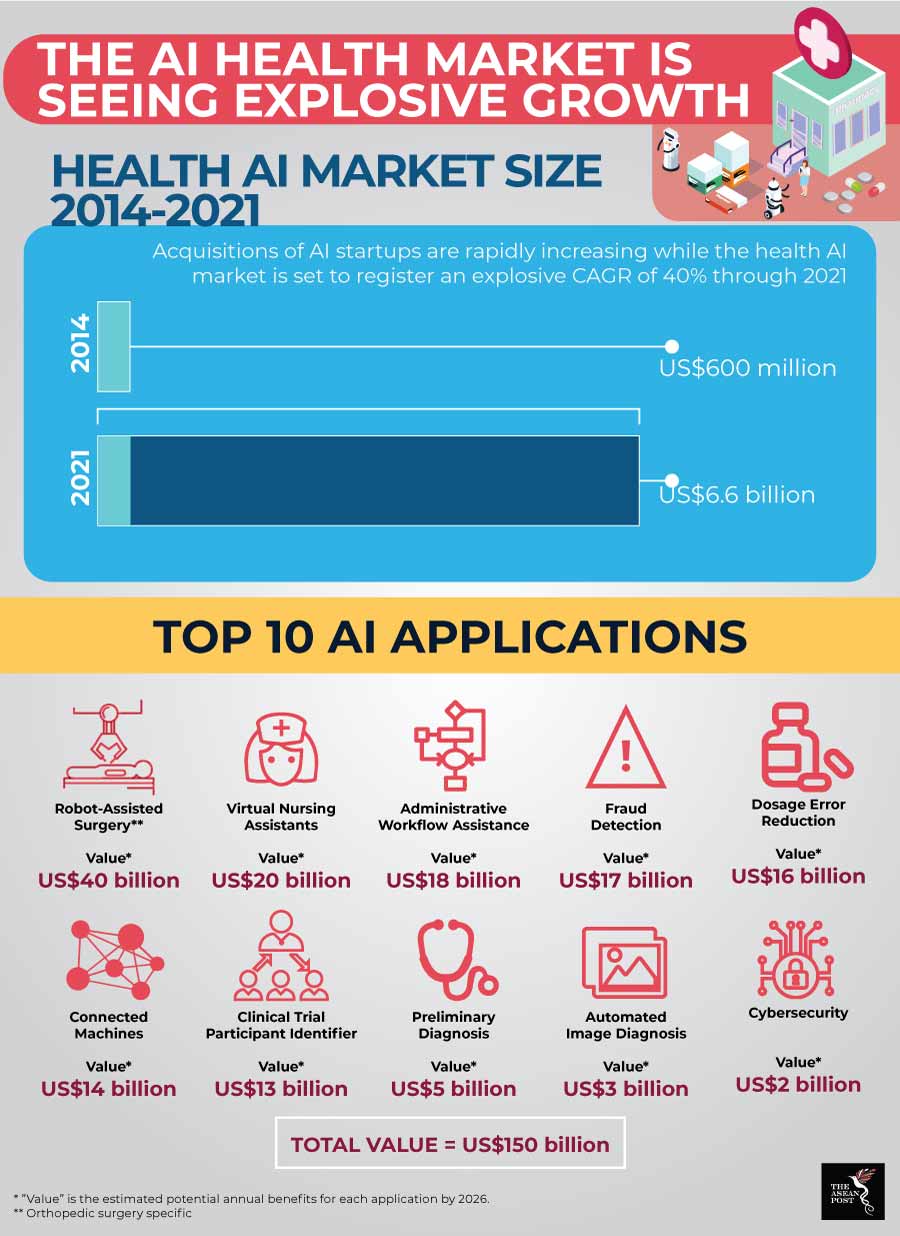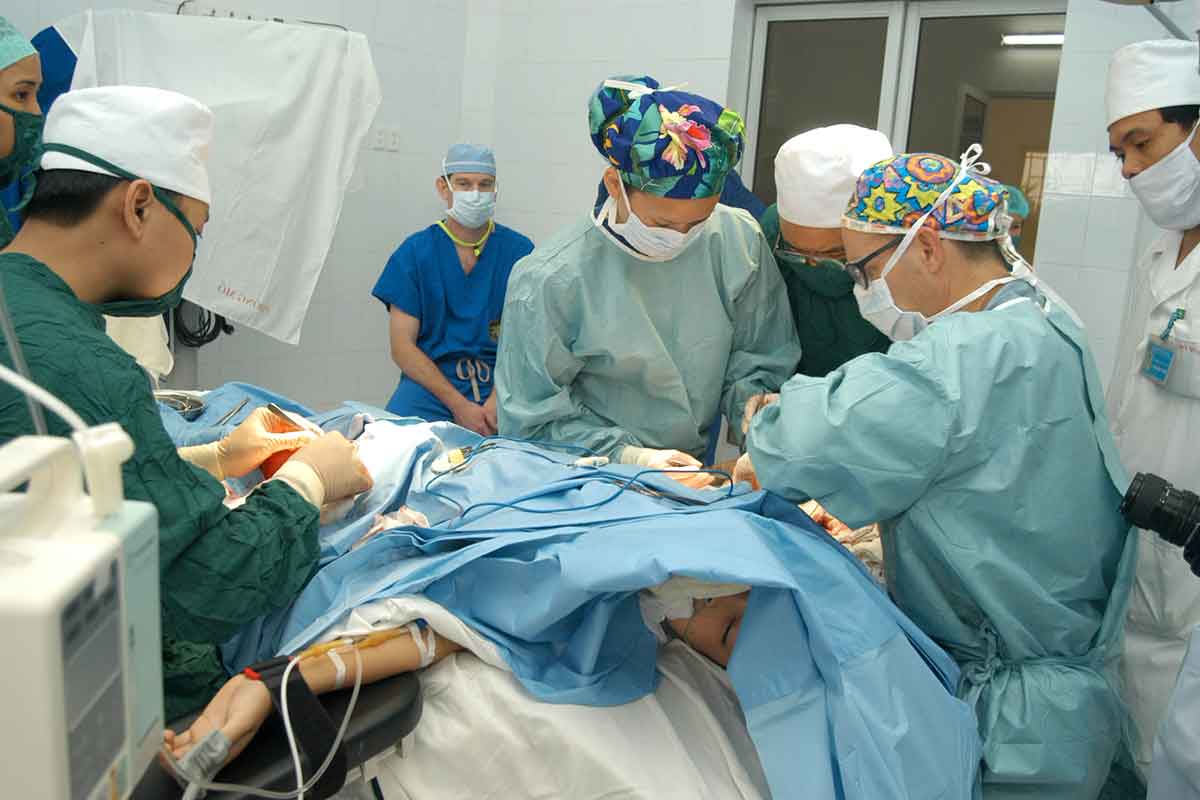You may think that artificial intelligence (AI) will make doctors obsolete soon but that day is still far off. In fact, computers are not that intelligent just yet.
Most of the computer solutions emerging in healthcare rely on algorithms written to analyse data and recommend treatments. They do not rely on computers thinking independently. The computers in question are fed with large amounts of known data and use rules or algorithms set by experts to extract information and apply it to a health issue or problem.
In the AI versus human competition held in Beijing, the BioMind system famously beat a team of 15 top doctors in diagnosing brain tumours and predicting the expansion of brain hematomas (bruises). However, the BioMind system's success was mostly due to its ability to recognise visual patterns and process information quickly without getting fatigued.
BioMind was jointly developed by Tiantan Hospital and Singapore start-up Hanalytics. It “learned” from over 20 years’ worth of magnetic resonance imaging (MRI) and computed tomography (CT) records and diagnoses archived at the hospital. When a wrong diagnosis is made by the system, a senior doctor will correct the error and the lesson is stored in the database.
Similarly, Indonesia’s web-based platform CekMata helps in early detection of potential cataracts by analysing close-up photos of users’ eyes and comparing them with a database of past diagnoses.
Stethee, a stethoscope built in Malaysia in collaboration with Australian company M3DICINE, records heart and lung sounds, and transmits the audio recordings to a smart device. AI is then used to detect the presence of heart or lung diseases. The smart stethoscope also tags geolocation and aggregates environmental data, such as temperature, humidity, pollen count and pollutant index, for analysis by healthcare professionals. The portability of the device also makes it useful in remote or rural areas.
A more advanced form of AI is available via machine learning (ML) which uses neural networks that simulate how the human brain works. It is capable of analysing probabilities down many levels and coming up with possible solutions. Another technology, known as “deep learning” enables software to recognise patterns in distinct layers. It can process and merge different sources of data.
IBM’s Watson for Oncology helps oncologists increase their efficiency by scoring and ranking medical literature; summarising patient records; and analysing volumes of medical literature to identify individualised treatment options. It draws information from over 300 medical journals, more than 200 textbooks and almost 15 million pages of research papers. With ML technology, the system continuously learns over time.
AI in action
Watson for Oncology is used by Hangzhou CognitiveCare in 21 hospitals in China. CognitiveCare will translate Watson’s English texts to Chinese dialects and localise drug doses based on China’s medical guidelines.
Singapore hopes to implement an AI-powered healthcare system whereby facial recognition technology will instantly register a patient entering the premises and match him or her to their medical and personal data; text messages will direct the patient to a consultation room; and the medical bill sent directly to his or her home or email.

Last July, the National University Health System (NUHS) in Singapore launched Discovery AI which applies AI tools to process the huge amounts of data generated in a hospital. It can present patient data in ways that help health professionals make decisions easily. The system is expected to roll out to NUHS institutions such as the National University Hospital, Ng Teng Fong General Hospital and Jurong Community Hospital over the next few years.
As smart as medical technology gets, it simply cannot replace the human touch as yet. “[Technology] makes us better, more efficient, more precise,” said Dr Ngiam Kee Yuan, NUHS’ group chief technology officer.
“None of the tools are to replace doctors,” he added.
“In the future, I think we will see AI replacing some of the more tedious, repetitive tasks that health professionals need to do and allow them more time for personal and face-to-face interaction with patients,” said Professor Tan Chorh Chuan, executive director for the Office for Healthcare Transformation at Singapore’s Ministry of Health.
In the wake of SingHealth’s massive data breach last year, Singapore has paused all its Smart Nation projects, including the National Electronic Health Record project which allows patient data to be shared among hospitals.
Small wonder then, that Accenture has listed cybersecurity as one of the Top 10 AI applications for healthcare in its Artificial Intelligence: Healthcare’s New Nervous System report 2017.
Related stories:
